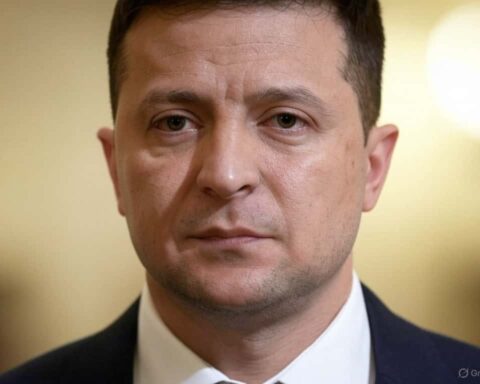The recent summit in Riyadh between the US and Russia has brought a mix of outcomes that have significant implications for the geopolitical landscape in Europe. The meeting was seen as a small victory for Russia, allowing Moscow to further propagate its narrative of the conflict in Ukraine as a NATO assault on Russia. Practical results emerged from the summit, with discussions around the return of American and Russian embassies to a more operational level and the partial restoration of diplomatic norms. However, a face-to-face meeting between Presidents Trump and Putin did not materialize, signaling a slowdown in immediate negotiations.
Impact on Russia and Ukraine
The outcome of the summit has implications for both Russia and Ukraine. Russia’s perceived rehabilitation into the global order signifies a step towards economic growth, diplomatic respectability, and forgiveness. Moscow’s narrative of being in an unprovoked war against NATO receives validation, and it regains peer status with the US. For Ukraine, the delay in reaching a swift deal provides a slight reprieve, as the White House did not pressure Kyiv to make immediate concessions. However, the uncertainty surrounding the peace negotiations could potentially affect Ukraine’s morale and sovereignty. Europe’s role in the peace talks also comes under scrutiny, as the US administration sends mixed signals regarding the continent’s involvement.
As time ticks on, the frontline of the conflict in Ukraine remains a pressing concern. Russia’s continued advances, albeit slow and costly, suggest that time may be on Putin’s side. The fragility of Ukraine’s allies’ unity, the recalibration of strategies, and the anxiety surrounding the situation only serve to underscore the challenges faced by Ukraine in maintaining its sovereignty and territorial integrity amidst Russian aggression. The evolving dynamics of the US-Russia relationship and its impact on the region highlight the complex interplay of interests at play in the Eastern European theater.
Moscow’s Gains from the Summit
Russia has long presented the conflict in Ukraine as a NATO aggression against Russia, a narrative reinforced during the recent bilateral meeting in Riyadh. The summit further perpetuated this misleading notion, allowing Moscow to continue painting itself as a victim of external forces.
Practical results for Russia post-summit
The discussions in Riyadh yielded tangible results for Moscow, with indications of a potential return to a more functional staffing level at the American and Russian embassies. This development marks a significant step in Russia’s reintegration into the global diplomatic arena. Despite not securing a face-to-face meeting between Presidents Trump and Putin, Russia’s diplomatic rehabilitation appears to be progressing, potentially aligning more with Moscow’s immediate interests.
While these diplomatic maneuverings may bring a sense of relief to Moscow, they also raise concerns for Ukraine. The lack of a swift resolution and the shifting geopolitical dynamics post-summit have heightened tensions and uncertainties, particularly regarding Ukraine’s territorial integrity and security. As Europe reasserts its relevance in the peace talks, the landscape of negotiations becomes more complex, with potential implications for Ukraine’s sovereignty and stability.
Overall, the recent developments highlight the nuanced interplay of diplomatic relationships and power dynamics in the region, underscoring the need for careful navigation and strategic foresight in addressing the ongoing conflicts and challenges in Eastern Europe.
Ukrainian Response to the Summit
The recent summit between the US and Russia in Riyadh has significant implications for Ukraine’s ongoing peace negotiations. While Moscow’s diplomatic gains and reintegration efforts are notable, the slow progress in resolving the conflict raises concerns about the security and sovereignty of Ukraine. As Europe emerges as a key player in the peace talks, the complexities of the situation underscore the need for a nuanced approach to addressing the region’s challenges.
President Zelensky’s reaction to the summit outcomes
Following the summit, Ukrainian President Volodymyr Zelensky responded with assertiveness, expressing his dissatisfaction with deals about Ukraine being made without Ukrainian involvement. His reaction reflects the frustration over the lack of transparency and inclusion in crucial discussions that affect Ukraine’s future. Zelensky’s stance highlights the importance of Ukraine’s active participation in shaping its destiny and emphasizes the significance of upholding its territorial integrity and security amidst shifting geopolitical dynamics.
The recent developments underscore the delicate balance of power and interests at play in Eastern Europe, emphasizing the need for all stakeholders to prioritize dialogue, cooperation, and respect for sovereignty as they navigate the complexities of the region’s conflicts.
Europe’s Relevance in the Post-Summit Landscape
The recent summit outcomes have underscored a significant shift in the US stance towards Europe. Statements from US officials regarding the US no longer serving as the sole security guarantor in Europe and questioning the loyalty of European allies have created ripples of concern across the continent. Amidst these remarks, Europe finds itself reevaluating its strategic position and the need to potentially defend its territory independently.
Europe’s role in peace talks over Ukraine
While there have been conflicting narratives surrounding Europe’s involvement in the peace negotiations for Ukraine, recent developments have highlighted the continent’s crucial role in the process. Despite initial doubts raised by some US envoys about European participation, there is a growing recognition of Europe’s importance in shaping the outcomes of peace talks and ensuring stability in the region. As discussions progress, Europe’s diplomatic efforts and strategic decisions will play a pivotal role in determining the future course of action in resolving the conflict.
In light of the evolving geopolitical landscape post-summit, Europe stands at a critical juncture, where its engagement and collaboration with key stakeholders will be essential in navigating the complex challenges and uncertainties in the region. The dynamics of power, alliances, and diplomatic negotiations continue to shape the path ahead, underscoring the imperative for Europe to assert its relevance and influence in fostering peace and stability in Eastern Europe.**Geopolitical Implications of the Summit**
Changes in Europe’s security dynamics
The recent summit outcomes have triggered a significant re-evaluation of Europe’s security dynamics. With the US signaling a shift away from being the primary security guarantor in the region, European nations are faced with the pressing need to reassess their defense strategies and capabilities. The growing sense of uncertainty stemming from this realignment underscores the imperative for European countries to enhance their collective defense mechanisms and strengthen regional security partnerships to safeguard against potential threats.
Impact on NATO alliance and European defense
The aftermath of the summit has reverberated through the NATO alliance, calling into question the cohesion and reliability of the transatlantic partnership. The statements made by US officials regarding European allies have raised concerns about the unity and solidarity within NATO. Furthermore, uncertainties surrounding the extent of US commitment to defending European territories have spurred discussions on European autonomy in defense matters. This development has significant implications for the future of the NATO alliance and underscores the need for European nations to bolster their defense capabilities and foster greater self-reliance in ensuring regional security.
In light of the evolving geopolitical landscape post-summit, Europe stands at a critical crossroads where the reconfigured security dynamics and shifting alliances necessitate a proactive and strategic approach to safeguarding its interests and upholding stability in the region. The recalibration of defense strategies, collaborative efforts among European nations, and engagement with key stakeholders will be pivotal in navigating the complex geopolitical challenges and maintaining a secure environment in Eastern Europe. The ongoing developments following the summit underscore the imperative for Europe to assert its role as a key player in promoting peace and security in the region amidst the evolving global dynamics.
Future Prospects for Moscow and Washington
Potential implications of the US-Russia deal
The recent developments in the relationship between the United States and Russia have the potential to reshape the geopolitical landscape in significant ways. The deal between the two countries not only indicates a shift in diplomatic dynamics but also carries implications for regional security and global power structures. By reestablishing a more functional level of engagement, both nations are signaling a willingness to address mutual concerns and explore areas of cooperation. However, the details and long-term effects of this deal remain to be fully understood.
Consequences of Russia’s rehabilitation in global order
Russia’s reintegration into the global order following the recent diplomatic initiatives carries various consequences for international relations. The rehabilitation of Russia on the global stage signifies a return to diplomatic normalization, which could lead to economic growth, enhanced diplomatic standing, and potential forgiveness for past transgressions. However, this renewed position also raises questions about the balance of power and the implications for regional stability. As Russia assumes a more prominent role in global affairs, the repercussions of its rehabilitation will be closely watched by stakeholders worldwide.
Concerns about the Front Line and Ukraine’s Sovereignty
The slow but persistent advances made by Russia in the ongoing conflict in Ukraine have raised concerns among international observers. Despite the costly nature of these advancements, Russia continues to make progress on the ground, positioning itself strategically in the region. With time seemingly working in Putin’s favor, the situation on the front line remains a focal point for assessing the evolving dynamics of the conflict.
Fragility of Ukraine’s morale and sovereignty
As the geopolitical landscape shifts and diplomatic negotiations unfold, Ukraine’s morale and sovereignty face increasing fragility. The delay in reaching a swift peace deal, coupled with the recalibration of alliances and the uncertainty surrounding Europe’s role in the conflict, place added pressure on Ukraine’s ability to maintain its autonomy and national identity. The ongoing anxiety among Ukraine’s allies further underscores the challenges that lie ahead for Ukraine’s sovereignty in the face of Russian aggression.







